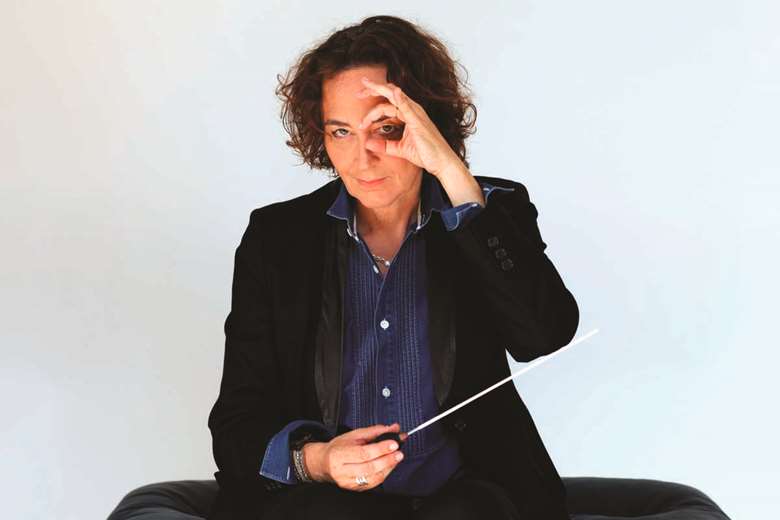Nathalie Stutzmann named Philadelphia Orchestra Principal Guest
Wednesday, December 16, 2020
The conductor and contralto also announces details of her next album

The Philadelphia Orchestra – Gramophone’s current Orchestra of the Year - has named Nathalie Stutzmann as its Principal Guest conductor for three years, beginning in the start of the 2021–22 season. Stutzmann ‘will spend multiple weeks each season in Philadelphia leading programmes ranging from subscription and Family Concerts to special projects, community initiatives, and more’, said a statement, adding that she ‘will also serve as a key member of the creative planning process’.
‘It is a privilege and an honor to become the principal guest conductor of the iconic Philadelphia Orchestra’, said Stutzmann. ‘Outstanding music-making, heartfelt playing, and emotional moments inhabit my soul every time I think about those marvellous musicians.’
Stutzmann, a contralto and conductor, records for Erato in both capacities - as indeed she will do on her next album, ‘Contralto’, due for release on January 15, and which will explore the deep-voiced female singers of the Baroque era. ‘We shouldn’t forget that the great opera composers of the early 18th century saw the female contralto as the equal of the male castrato,’ says Stutzmann.
‘The two voices were interchangeable. A male character written for the contralto voice could be allocated to a castrato or a woman – though I’m sorry to say that a woman would only get the work when a castrato wasn’t available! Essentially, even the most brilliant female singers of the era, though they had their admirers, did not enjoy the same kind of reputation as the castrati, who were idolised by high society,’ she added.
Stutzmann also hopes it will makes a strong case for the contralto voice itself. ‘We should remember that the voice that most closely resembles the sound of a castrato is not the countertenor – which is produced using a falsetto technique – but the contralto, which is a natural voice. As interest had grown in Baroque music in recent decades, contraltos have once again been relegated to the background, while the countertenors have achieved stardom,’ she said. ‘One reason for this might be that stage directors find it easier to cast them in productions of operas built around roles for castrato singers – a contralto would have to dress up as a man. When these operas were written, though, contraltos and castrati were in competition for the male roles – but contraltos also took on less starry duties as a mother, wife, nurse or old woman, or perhaps as an adolescent boy.’







